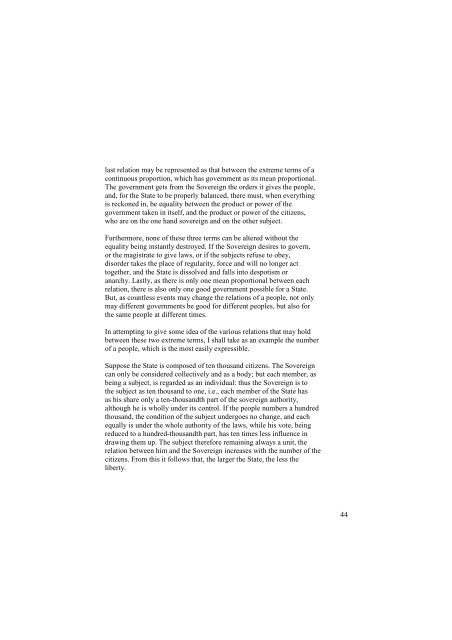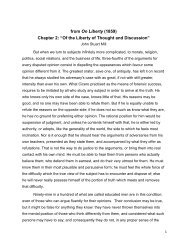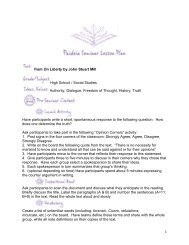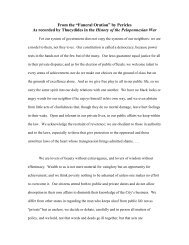Rousseau_contrat-social
You also want an ePaper? Increase the reach of your titles
YUMPU automatically turns print PDFs into web optimized ePapers that Google loves.
last relation may be represented as that between the extreme terms of a<br />
continuous proportion, which has government as its mean proportional.<br />
The government gets from the Sovereign the orders it gives the people,<br />
and, for the State to be properly balanced, there must, when everything<br />
is reckoned in, be equality between the product or power of the<br />
government taken in itself, and the product or power of the citizens,<br />
who are on the one hand sovereign and on the other subject.<br />
Furthermore, none of these three terms can be altered without the<br />
equality being instantly destroyed. If the Sovereign desires to govern,<br />
or the magistrate to give laws, or if the subjects refuse to obey,<br />
disorder takes the place of regularity, force and will no longer act<br />
together, and the State is dissolved and falls into despotism or<br />
anarchy. Lastly, as there is only one mean proportional between each<br />
relation, there is also only one good government possible for a State.<br />
But, as countless events may change the relations of a people, not only<br />
may different governments be good for different peoples, but also for<br />
the same people at different times.<br />
In attempting to give some idea of the various relations that may hold<br />
between these two extreme terms, I shall take as an example the number<br />
of a people, which is the most easily expressible.<br />
Suppose the State is composed of ten thousand citizens. The Sovereign<br />
can only be considered collectively and as a body; but each member, as<br />
being a subject, is regarded as an individual: thus the Sovereign is to<br />
the subject as ten thousand to one, i.e., each member of the State has<br />
as his share only a ten-thousandth part of the sovereign authority,<br />
although he is wholly under its control. If the people numbers a hundred<br />
thousand, the condition of the subject undergoes no change, and each<br />
equally is under the whole authority of the laws, while his vote, being<br />
reduced to a hundred-thousandth part, has ten times less influence in<br />
drawing them up. The subject therefore remaining always a unit, the<br />
relation between him and the Sovereign increases with the number of the<br />
citizens. From this it follows that, the larger the State, the less the<br />
liberty.<br />
44











